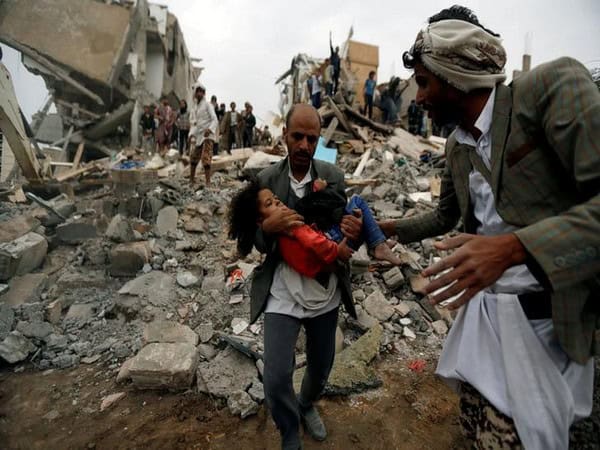Sanaa [Yemen]: In a move that could pave the way for negotiations to move forward to end Yemen’s four-year-old civil war, the Houthis have unilaterally agreed to withdraw its forces from three key ports of Hodeidah, Salif, and Ras-Issa, the United Nations said on Friday.
The United Nations Mission to Support the Hudaydah Agreement (UNMHA), the deal which was brokered between Houthis and the Yemeni government in Sweden last December, will monitor the redeployment of the group’s forces for four days beginning from Friday.
“This is a first practical step on the ground since the conclusion of the Hudaydah Agreement, but stresses that it must be followed by the committed, transparent and sustained actions of the parties to fully deliver on their obligations,” the UN said in a statement.
“Furthermore, this unilateral redeployment should allow for establishing a UN leading role in supporting the Red Sea Ports Corporation in managing the ports, and for enhancing the UNVIM’s monitoring in accordance with the Agreement,” it added.
Calling the need to restore humanitarian access to millions of Yemeni people displaced in the civil war, the UN said, “The Yemeni parties must continue to urgently work towards this goal, and all commitments made in Stockholm in December 2018.”
“The United Nations will continue to support the parties’ in this regard so that they deliver on their obligations towards the Yemeni people and return peace and stability to their land,” the global body further said.
On December 13 last year, the Houthis and the Yemen government reached the ceasefire agreement in vacating Hodeidah during the talks in Stockholm. However, the two parties had not withdrawn its forces from the strategic Yemeni port city amidst a slew of accusations on violating the truce.
The armed conflict in Yemen has brought more than 22 million people that accounts to over three-quarters of the entire country’s population, in dire need of humanitarian assistance or protection, of whom over eight million are severely food insecure and at risk of starvation, the UN has estimated.
The Saudi-led military intervention against a Houthi rebel insurgency in early 2015 has also wrecked the country’s medical, water and sanitation systems, resulting in the outbreak of cholera and other deadly diseases.
Thousands of civilians, especially children, have lost their lives either in airstrikes or fighting hunger.
Yemen’s capital Sanaa is currently held by the Iran-backed Houthis, who killed then-President Ali Abdullah Saleh in December 2017.
[source_without_link]ANI[/source_without_link]

